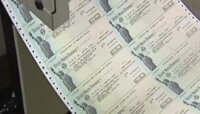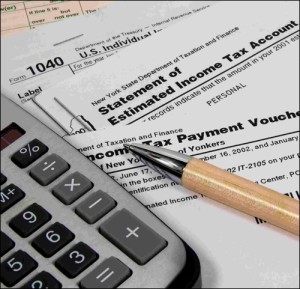Dear Bonnie,
I lost my job and am now on unemployment. Do I have to pay taxes on that? I understand that there are all kinds of other tax issues that can come up. What do I have to be on the lookout for?
Vince, Sonoma
Hi Vince,
Thank you for writing. Losing your job is bad enough without having to consider tax planning, but, unfortunately, that’s exactly what needs to be done. In fact, any time you encounter a major life change — marriage, divorce, buying a home, starting a business or a family — it’s important to sit down with a tax professional to analyze and strategize.
First the bad news: If your final check included severance pay and accumulated leave, sick, and vacation pay, it is taxable income. Hopefully, there was enough withholding to countermand the ensuing tax liability.
And yes, the unemployment you are receiving is taxable income. If financially feasible and if your tax pro agrees, ask for federal income taxes to be withheld from the unemployment checks. You might not have to have anything withheld; however, it depends on the situation. If you will not be on unemployment for very long or if you will be dipping into a lower tax bracket due to the job loss, you may be able to collect unemployment benefits without increasing your tax liability and having to withhold for it. Simply crunch the numbers to make sure.
Getting by while unemployed may include receiving gifts and loans from family and friends. This is not taxable income to you. It is generally the giver who may be taxed on the value of the gift given if it exceeds the annual gift exclusion of $14,000.
If however, you dip into your retirement plan to make ends meet, you will be required to pay taxes on the distribution and if you are under the age of 59 and a half, you may be subject to a 10 percent early withdrawal penalty. If you are completely and totally disabled or use the funds to pay for health insurance premiums while unemployed, or are simply rolling over the funds to a new retirement plan, you will be excepted from this penalty. Check with your tax pro or read up on the topic in IRS Publication 575. Ask your plan provider to withhold the income taxes due on funds you withdraw.
If you sell stocks or bonds to supplement your income, you must report the sales on your income tax return and pay capital gains tax on any profit. Remember, that you will not be required to pay tax on the full amount of the sale. You are allowed to subtract your cost basis from the sales proceeds and pay taxes on the difference. It’s possible that you will cash out stocks at a loss and therefore enjoy a capital loss on your tax return to defray other income.
Costs you incur in your new job search as long as you are staying within the same profession are deductible as itemized deductions on Schedule A. These include expenses such as resume preparation, employment agency fees, and travel to and from job interviews.
If you find a new job and are required to relocate, your moving expenses may be deductible. Check out IRS Publication 521 to see what is deductible and how to claim the deduction.
You may be one of many displaced workers who decide to don the entrepreneurial hat. If you open your own business, and especially if you have not previously owned a business, please consult with a tax advisor and business attorney to determine the steps you must take to ensure a successful enterprise. A move like this completely changes your tax picture and you do not want any unpleasant surprises come next April 15.
If you are paying off a prior year tax liability and losing your job puts you in a position that you cannot keep a roof over your head and continue the monthly IRS payments, call the IRS immediately and ask to be deemed “currently not collectible.” IRS agents are sympathetic and cooperative. They will require a financial analysis to determine your eligibility for this program so be prepared with income and expense data when you place the call. Interest and penalties accrue while in the program but the IRS will not make any collection efforts.
You may wonder if you can now file your 2014 income tax return and get a refund. The answer is no. First of all, the forms and tax software are not yet available. Congress has not finished changing tax law that may or may not be retroactive to the beginning of the year. W2 forms are issued in January, even if your previous employer has gone bankrupt, they do not have access to the 2014 W2 forms and are not required to send one to you until January 2015. Make sure you keep your previous employer apprised of your current address so that you receive your W2 in a timely manner.
Thanks for the great question Vincent, and best of luck in your job search.
Bonnie Lee is an Enrolled Agent admitted to practice and representing taxpayers in all 50 states at all levels within the IRS. She is the owner of Taxpertise in Sonoma, and the author of “Taxpertise, The Complete Book of Dirty Little Secrets and Hidden Deductions for Small Business that the IRS Doesn’t Want You to Know” and the new e-book “Taxpertise for the Creative Mind – Murder, Mayhem, Romance, Comedy and Tax Tips for Artists of all Kinds.” Taxpertise.com.




Be First to Comment